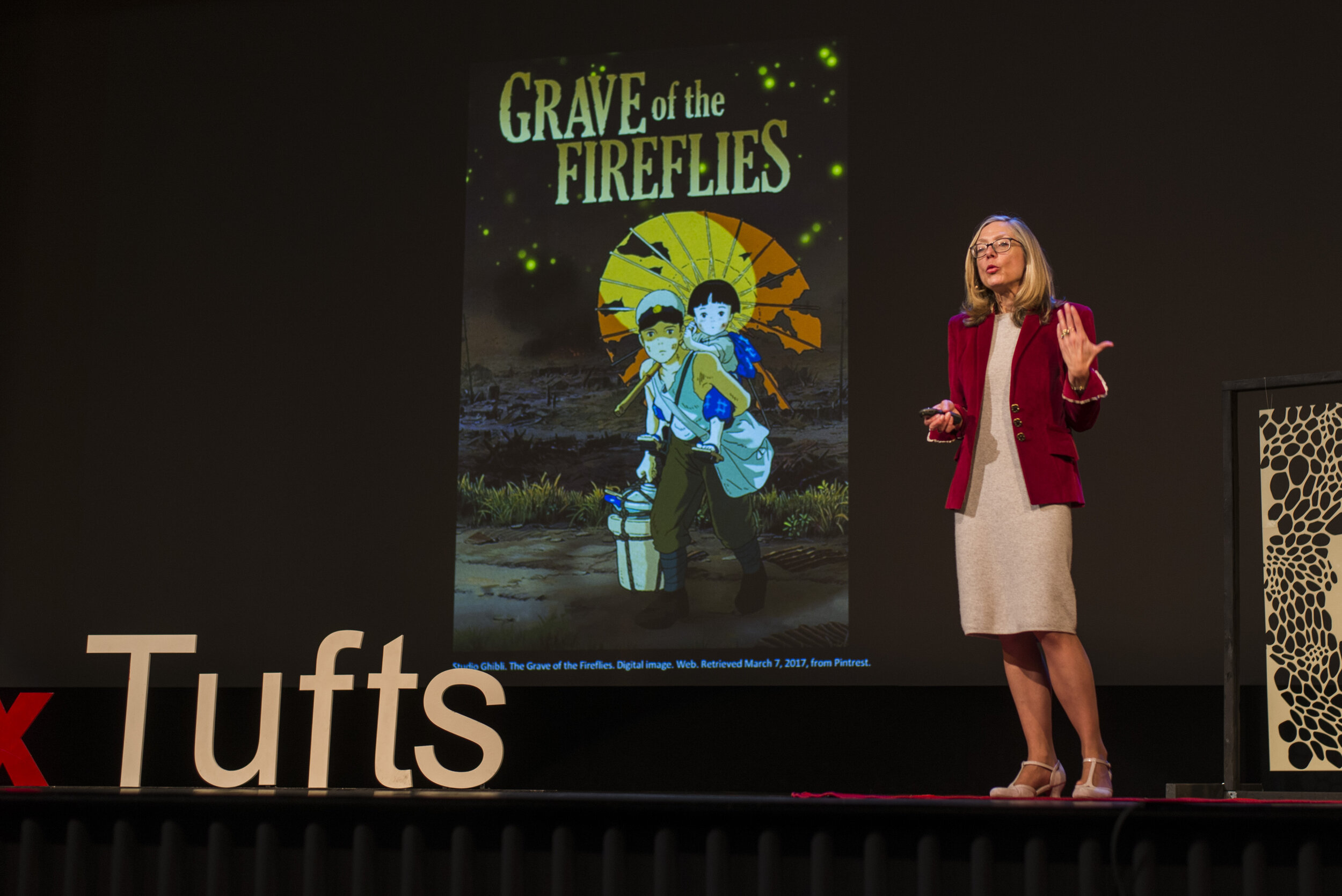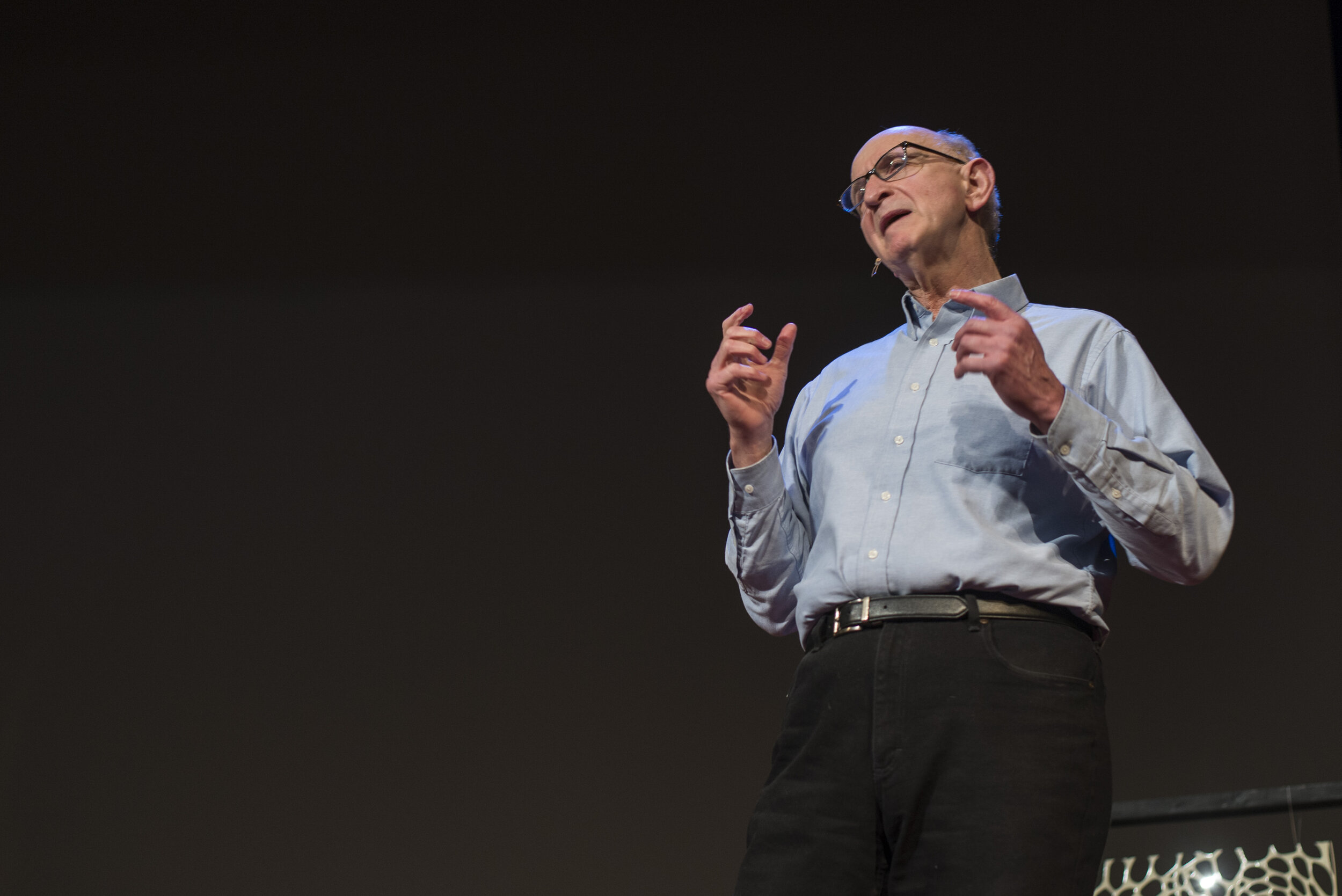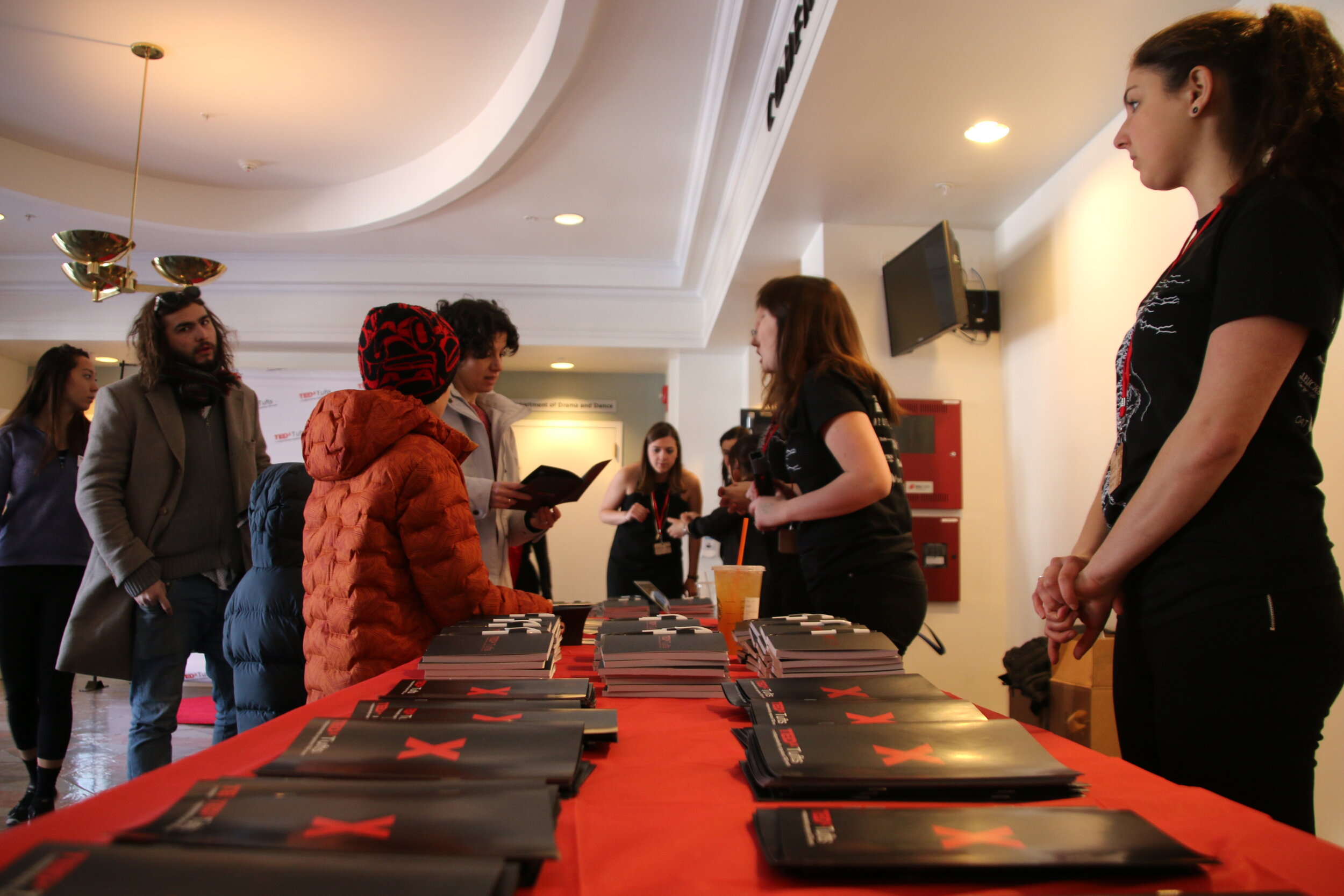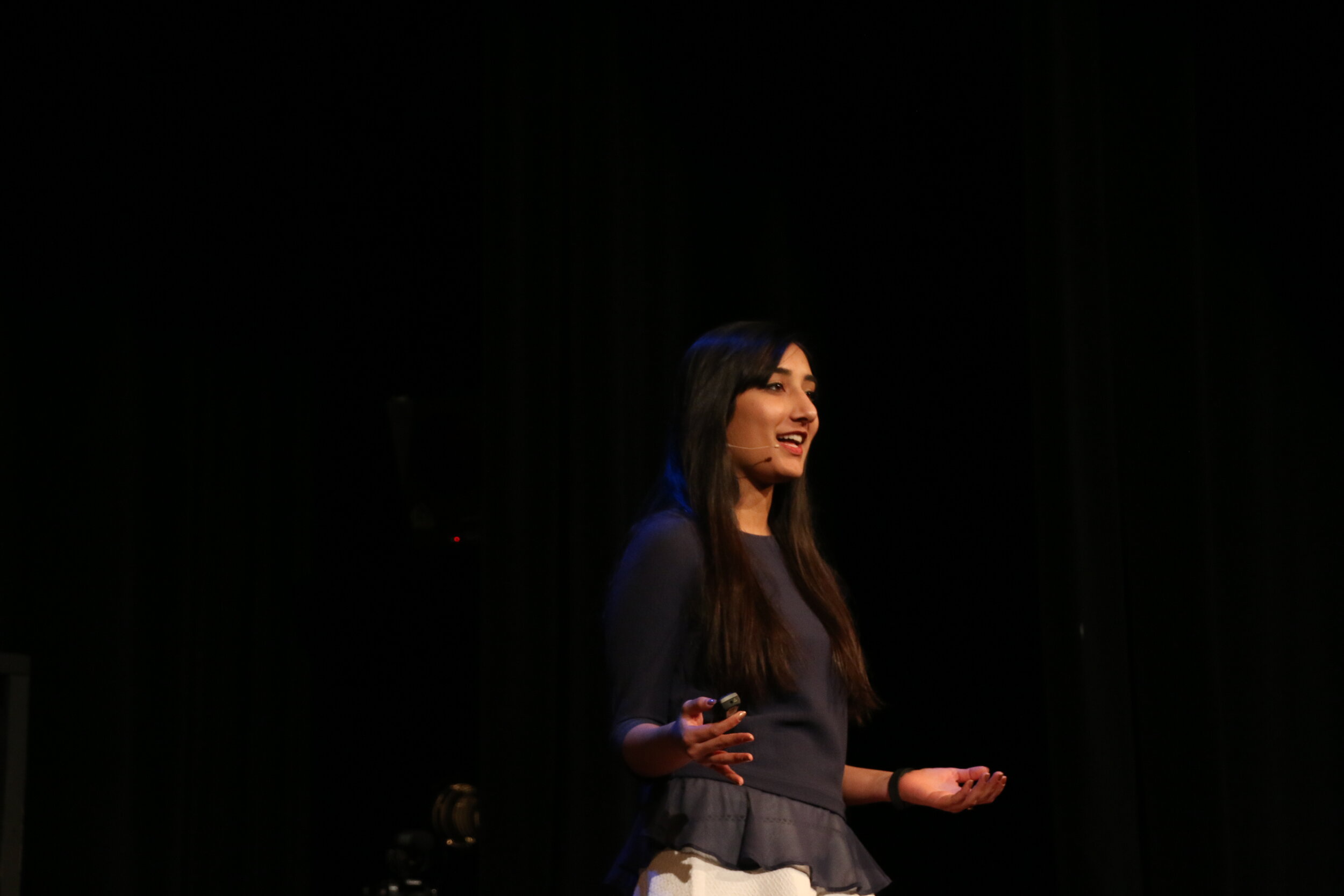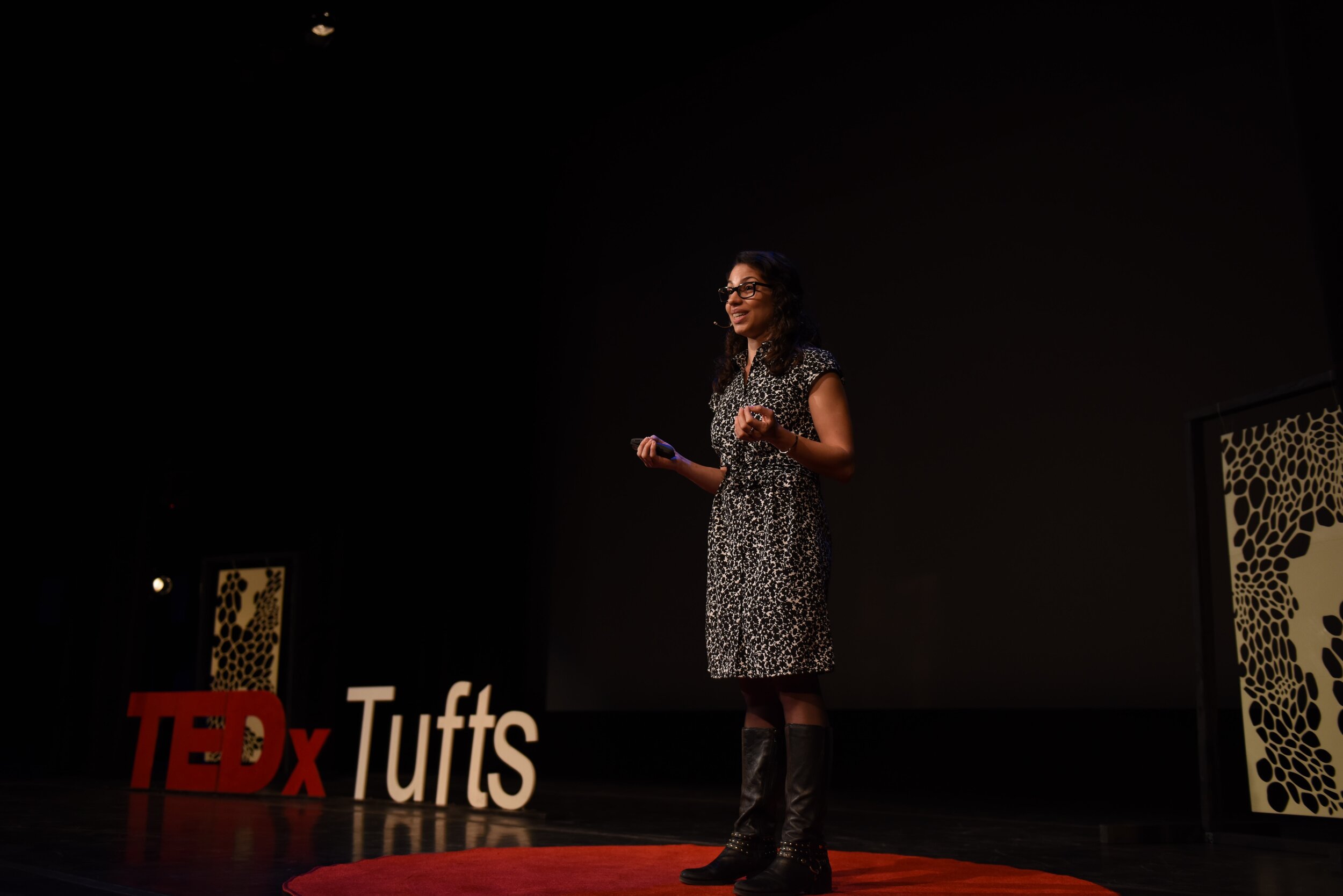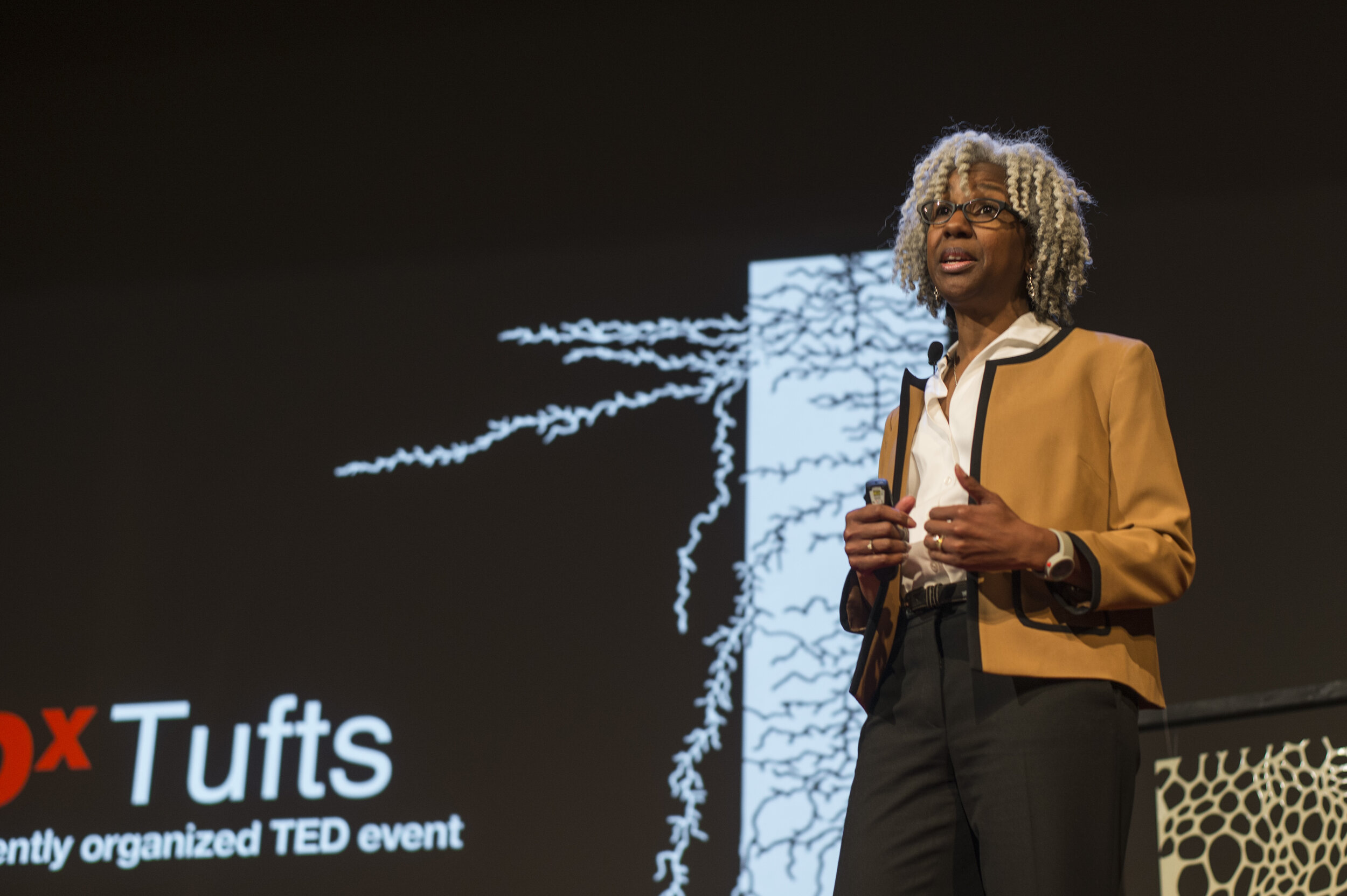Talks:

In her TEDxTufts talk, Isabel Merrin tackles ideas about death and dying, and why young people are so afraid to have these tricky conversations. Through her experiences working in hospice care, Isabel has developed a unique perspective on end of life care. Isabel is a senior studying Art History. Aside from her passion for hospice care, she is a Tisch Scholar, interning for The Conversation Project, the leader of Moral Voices, a social justice initiative, and a campus tour guide. In her spare time, she enjoys creative writing and baking.

From the TEDxTufts stage, Justin Robbins shares his experiences with the autism community, and where the dominant narrative emerges when it comes to policy, social interaction, and identity politics. As an autistic individual himself, Justin tells his side of a story that is not often heard. Justin Robbins is a senior double majoring in biology and history. He is the co-founder and president of the Coalition for Autism Support at Tufts (CAST), a support and advocacy group by and for autistic students.

Through her experiences with activism during her undergraduate career, Alyssa Rivas has observed an emerging theme of "wokeness" within her peers, and has questions about its impact on the larger social community. From the TEDxTufts stage, Alyssa defines wokeness, allyship, and what it means to be part of a community where identity, background, and intention intersect.

As a seasoned public speaker and leading member of her debate team, Manal Cheema has noticed a trend in the evaluation of the female voice. From the TEDxTufts stage, Manal demonstrates to the audience where the female voice lands in the scheme of public speaking.

Atreyo Sinha comes to the TEDxTufts stage as a both a person that is passionate about human interaction as well as a global citizen. As a citizen of India, Atreyo offers a non-American perspective on the intricacies of small talk and pesonal connection. Relentlessly inquisitive, he strives to understand the intricacies and nuances that influence popular culture.

What is a scientist? Rachael Bonoan, a PhD candidate studyig nutritional ecology and ecological immunity in honey bees at Tufts University, redefines the answer to this question from her observations of curiosity in chidlren. Rachael is a Ph.D. Candidate who studies honey bee nutritional ecology in the Starks Lab at Tufts University. She is interested in how seasonal changes in the distribution and abundance of flowers (i.e. honey bee food!) affect honey bee health and behavior. Rachael is also the President of the Boston Area Beekeepers Association and enjoys communicating her research and the importance of pollinator health to scientists, beekeepers, garden clubs, and the general public.

Neuroscience and biomechanics researcher Eric Tytell observes the muscles in marine life to emphasize the importance of observing the planet's biodiversity. By breaking down the machinery of fishes, Eric demonstrates that we can find solutions to some of life's problems by observing the life around us. Eric Tytell is an assistant professor of Biology at Tufts University, where he studies how fish swim, from the spinal cord of lampreys to the fluid flowing around sunfish. In his research, he aims to understand how fish bodies and brains work together so that they can swim stably and efficiently, even in flowing water with unpredictable turbulence.

What happens when you are accused of a crime that you did not do? In 2010 , this happened to Sonja Spears, a justice of twelve years in New Orleans, Louisiana. Justice Spears tells her story of protecting herself from an unjust manipulation of the law from the TEDxTufts stage. Sonja M. Spears is a Tufts graduate and a retired judge with twelve years of judicial service. She is eternally hopeful and confident that upcoming generations will choose to create a future where equality, justice and compassion are priorities.

Lead stem cell researcher in Boston, Massachusetts, Jonathan Garlick tells his story of how to engage in productive dialogue around divisive scientific topics. An educator at Tufts University and a "civic scientist", Jonathan gives his perspective on how to be a member of the scientific community through rap. Jonathan Garlick is a stem cell scientist who teaches that learning about sciences issues through a personal, reflective lens can inspire empathy, moral responsibility and civic action. He deeply believes that we can build trust, dignity and humility through open-minded dialogue across divisive societal issues by being genuinely curious about each other. He believes that rapping helps, too.

A trailblazer in her field of animation scholarship, Susan Napier opened a field of study that left many questioning her decisions, but continued forward in the pursuit of her passions. A professor of Japanese and Film studies at Tufts University, Susan tells her story of resilience in the face of doubt.


